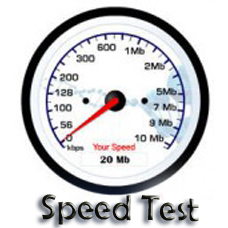How Do I Tell if my Website is Fast Enough?
Posted on Jul 4, 2011 in Internet Business, Web Design | 0 comments
 Measuring website speed is important for any web designer. Google uses website loading speed to rank webpages, although they state “fewer than 1% of search engine queries are affected.”
Measuring website speed is important for any web designer. Google uses website loading speed to rank webpages, although they state “fewer than 1% of search engine queries are affected.”
Loading times matter. Even small differences in load times can cause users to leave your site, or to not spend as much time on your site enjoying your content as they might otherwise. A small difference for people with high-speed connections can be quite profound for people with slower connections.
Figuring out how fast your website is is actually more difficult than you might expect! There are many wonderful tools out there; some give you a scorecard with suggestions of what measures you should implement on your site. Every time you run those tests you will get the same result, but the suggested changes may or may not significantly improve your site speed.
The others measure your actual site load time. They run from a server somewhere in the world, go to your URL and clock how long it takes to download the content.
Here’s where it gets tricky. The time to load a page is highly variable. Where is the server of the tester? Where is the web host server? How good are their Internet connections? What time of day is it? What is the server load at that moment in time on both servers? What parts of the website are downloaded? What browser is emulated or used by the tester?
For example, if the website is hosted in Texas and I try loading it in my web browser in San Antonio, Texas, I would expect different results than someone testing it in San Francisco.
The point is that those tests are highly variable. Some testing programs may say “2 seconds!” while another will say “12 seconds.” Even if you run the test for your website and then immediately run it again, you may note slightly or substantially different results.
(Comparing the speed of two different websites is even worse, as the themes or plugins they are using may affect the speed. Even identical websites with the same web host may end up on different servers and be loaded differently.)
What this means is that you might check your website’s load time as it is now, then change something to speed it up, check your website’s load time again… and the value is practically useless. Perhaps that caching plugin you installed actually did speed things up, but now it’s day in your time zone, more people are getting online and the servers are busier, so your second test gives a longer load time than the first.
Or you may have tried something that had no effect, but when you test it, it appears to have sped up the website by several seconds–a false gain.
The point is, one test is never enough. You must run tests over and over and over to see if there is an overall pattern, if the average is different one way than another. What is best is to set up two websites that you can run tests on simultaneously; have the sites be as identical as possible (except for the change you’re testing) and on the same host. Make one change on one site, run speed tests on both many times, and see if, overall, there is a significant difference.
Speed Optimization Resources
Google’s Page Speed gives you recommendations on what to change in your website.
Yahoo’s YSlow is similar to Page Speed; it scans your website and suggests speed-improving features to implement.
Google Webmaster Tools has a “Site Performance” tool showing you actual performance result that your users have experienced. Works best for a large number of users over an extended period of time.
Speed Tests
WebPageTest allows you to select a server location and browser. It then emulates an actual user experience, showing you a snapshot of what the user sees and how many seconds it took to fully load the page and to reload the page.
Site-Perf.com is simple: enter the URL, pick the server location and then see the download time for the website. Seems to show much shorter times than other testing sites do.
Pingdom is quite well known for judging performance times of websites. Be aware that it seems to go out of its way to download any resource listed in CSS files, even when ordinary browsers would not. However, it can be useful for pointing out troublesome files that may be slowing things down.
WebSiteOptimization.com gives a report with download time estimates for different connection speeds.
Alertra has a “spot check” option near the top of the page. Enter the URL and it shows you load times from multiple locations around the world, which is nice and convenient. It also shows how many bytes it downloaded; it does not seem to download all the resources on the webpage, causing the load times to appear to be much faster than through other speed tests.




0 Comments
Trackbacks/Pingbacks